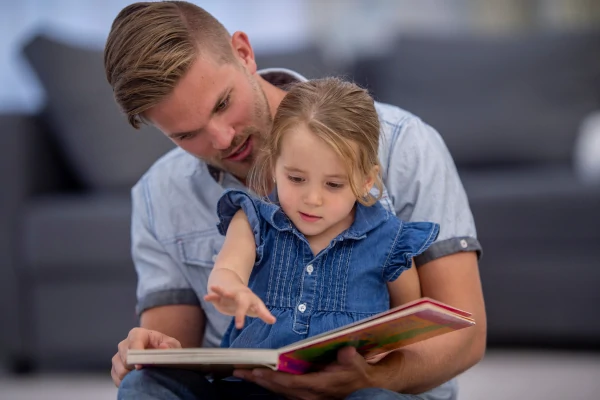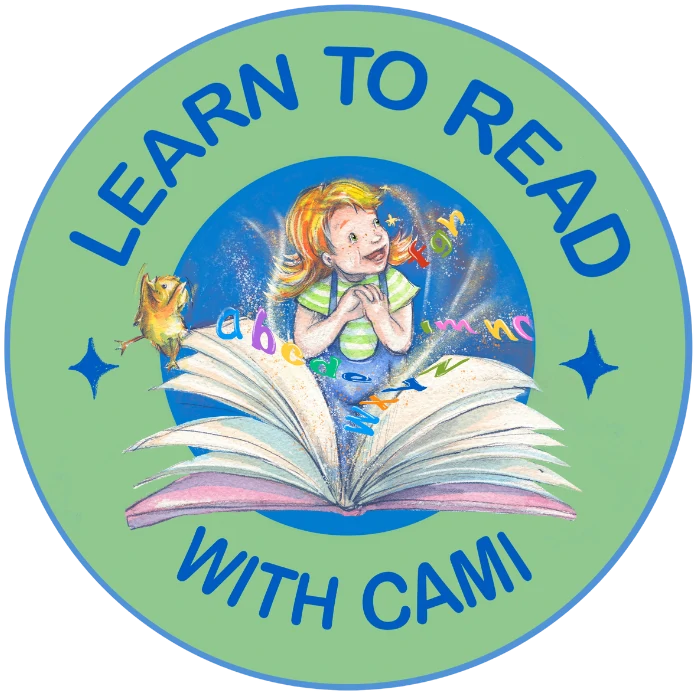
Reading to your preschooler is one of the best ways to build a strong foundation for their language and literacy skills.
Starting school is an exciting milestone for both kids and parents, but did you know that developing a child’s literacy skills before school can make a huge difference in how they thrive once they step into the classroom? Research shows that the earlier a child builds strong literacy foundations, the more confident and successful they’ll be when they start school.
According to the 2021 Australian Early Development Census report, 1 in 5 Australian children start school developmentally vulnerable. One of the five key domains assessed includes language and cognitive skills which is an integral aspect of early literacy. Of these children, a significant proportion are found to be struggling with skills like reading, writing, and verbal communication, which are essential for school readiness. Research shows that this gap can have a long-lasting impact on literacy development and that children who start school behind, are more likely to experience challenges in reading comprehension, spelling, and writing as they progress through their education.
By building your child’s literacy skills before they start school, you’re giving them a head start. Early exposure to reading, writing, and language not only boosts their chances of academic success but also helps them feel more confident as they navigate the school environment.
This refers to a child’s ability to hear and manipulate the sounds in words. Simple activities like rhyming, clapping out syllables, and identifying beginning sounds can strengthen these skills. According to research, children with strong phonological awareness skills are far more likely to become proficient readers by the end of their first year of school.
Introducing letters and the sound each letter represents to your child before they start school could have a significant impact on their ability to build early reading skills, and develop the confidence they need to engage with literacy tasks in the classroom.
A rich vocabulary helps children understand what they read and communicate more effectively. Reading to your child daily is one of the best ways to introduce new words. Picture books, nursery rhymes, and even simple stories all help your child build their word bank.
While they don’t need to be able to write yet, helping your child hold a pencil, recognise shapes, and make marks on paper can set them up for success. Writing is closely linked to reading, and developing these fine motor skills early on plays a big role in their literacy development. A great place to start is with your child’s name.
Make reading a part of your daily routine. Even if it’s just 10 minutes a day, reading to your child will expose them to new vocabulary, sentence structures, and concepts. According to The Australian Early Development Census, children who are regularly read to are far more likely to meet developmental milestones in literacy when they start school.
Use games, songs, and rhymes to make learning literacy skills enjoyable. Play rhyming games or point out letters and sounds during daily activities—whether you’re walking through the park or grocery shopping.
Talk to your child as much as possible. Ask questions about their day, encourage them to tell stories, and listen to their ideas. This helps build language skills and gives them a chance to practice organising their thoughts.
Early literacy skills are essential for success in school and beyond. By focusing on letter knowledge, phonological awareness, vocabulary, and early writing skills, you’re giving your child a solid foundation that will serve them well as they begin formal education.
Every book, every game, and every conversation counts!
Stay connected via our newsletter and never miss a resource. Signup for exclusive tips and free resources! Unsubscribe at any time.
